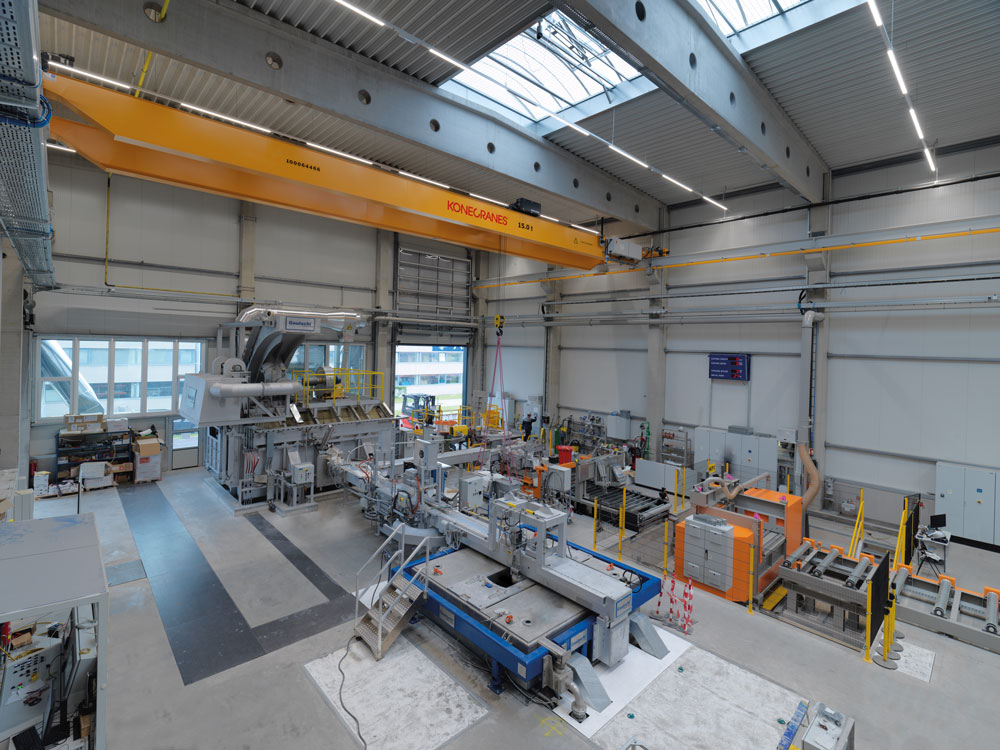HPI technology for the Emirates.
/ Innovation & Technology, Success Stories
EBNER.blog | Rainer Edtmeier, HPI, Austria
HPI technology for the Emirates.
An automated production line for aluminum from HPI & FFT.
EGA – Al Taweelah invests in an automated production line for aluminum ingots from HPI & FFT.
THE HPI – FFT PARTNERSHIP
With many years of experience and a comprehensive product portfolio, HPI High Performance Industrietech-nik GmbH and FFT Produktionssysteme GmbH & Co. KG can offer individually-tailored, customer-specific solutions to the aluminum industry that are of the highest quality. Close cooperation between the two companies make complete production lines possible, with turn-key installation and the lowest possible amount of interface and coordination work for customers. Turn-key installation is a central aspect of this approach. We take into account all boundary conditions like quality and delivery date requirements, and accept overall responsibility: we manage the project until the equipment is handed over. Our goal, as general contractor for all phases of the process, is to work closely together with the customer and so develop the optimal solution. The integration of our know-how into the engineering and implementation of the project means that we can assure you a trouble-free start of production.
BUNDLED COMPETENCIES THAT SERVE THE CUSTOMER
Together with HPI, FFT develops individually-tailored production lines. From the casting furnace all the way up to retrieval of the finished product at the end of the line, without any required interventions by an operator. The result is fully-automated casting lines for aluminum ingots, using state-of-the-art technology. Such ingots are a preferred starting material for casting of products such as engine blocks, and fulfill the stringent requirements of the automotive industry.
As water is a valuable resource in the United Arab Emirates, it was particularly important during this project to optimize the cooling water supply to the molds. With the help of CFD (Computational Fluid Dynamics) simu-lations, HPI ensured that every casting strand received the same volume of water. This had a positive effect, on not only water consumption but also on the uniformity of production.
Of course, to implement these features, completely new mold technology was required. An additional advantage of these new molds is the low consumption of oil.
The industry 4.0 technology from FFT, such as networked industrial robots and autonomous transport systems that ensure large-scale production and are designed for casthouse conditions, as well as our expertise with the simulation software, are of particular service to our customers.
FFT simulates all the the equipment in a virtual environment. This reduces the time required for commissioning and the go-live phase at the customer’s works. With the assistance of virtual models of the machinery, a digital twin is created that allows commissioning in advance – before all of the equipment is even assembled. The assembly of machine data and information from the production line, which can be used to schedule preventative maintenance, increases overall performance: the machinery informs the operator when maintenance should be carried out.
The production line is equipped with a machine vision/image processing system, which carries out all quality control procedures and inspects every ingot while production is running as a part of this process. All manufactured ingots undergo quality control and the machine learns of defects and damage during production, as it automatically sorts out anomalous product. Fault-free products are processed further, and delivered to the customer. All bundling, packing, laser marking and securing of the product is carried out by industrial robots.
Taken together, all of these functionalities raise the technological capabilities of the casting facility to a new level, and pair this rise with a significant increase in production yields.

The new Casthouse Revolution Center in Ranshofen, Austria, where the aluminum technology of the future is being researched.



